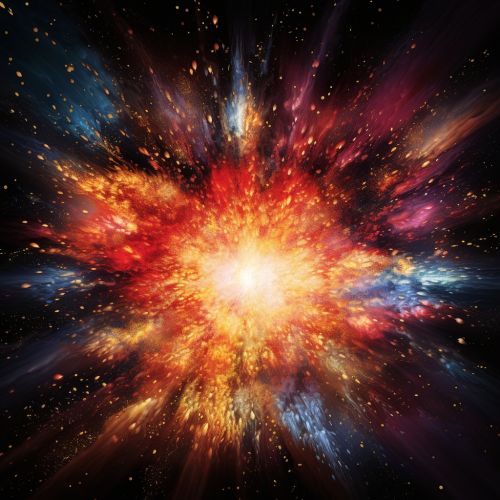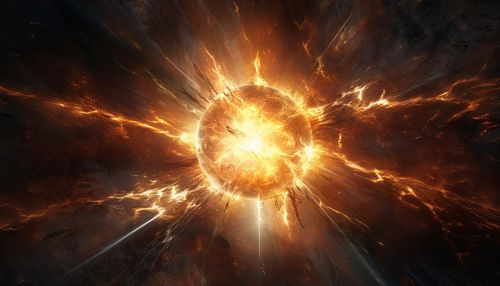Universe
Introduction
The Universe is the vast, all-encompassing space or cosmos that includes everything from the smallest particles to the largest galaxies and all the matter, energy, and even time itself that exists within this boundless expanse. It is a complex and intricate system of celestial bodies, phenomena, and forces that has been the subject of human curiosity, exploration, and scientific study for centuries.
Origin and Evolution
The most widely accepted scientific theory about the origin of the universe is the Big Bang Theory. This theory posits that the universe began as a hot, dense point nearly 13.8 billion years ago. Since then, the universe has been expanding, a process that continues to this day.


The first few minutes after the Big Bang were critical in shaping the universe as we know it. During this time, the fundamental forces of the universe began to separate and the first particles and antiparticles formed. These particles included protons, neutrons, and electrons, which would later form atoms.
Structure and Composition
The universe is composed of several different types of matter and energy. The most familiar type of matter, known as baryonic matter, includes protons, neutrons, and electrons, and constitutes stars, planets, and everything on Earth. However, baryonic matter makes up less than 5% of the universe. The rest of the universe is composed of dark matter and dark energy.
Dark matter is a type of matter that does not interact with electromagnetic radiation, making it invisible and detectable only through its gravitational effects. It is estimated to constitute about 27% of the universe.
Dark energy, on the other hand, is a form of energy that is believed to be responsible for the accelerated expansion of the universe. It is thought to make up approximately 68% of the universe.
Observable Universe and Beyond
The observable universe refers to the portion of the universe that we can potentially observe from Earth. The observable universe is estimated to be about 93 billion light-years in diameter. However, the entire universe is believed to be much larger, possibly infinite.
Beyond the observable universe lies the unobservable universe, which includes everything that is too far away to be observed from Earth. The boundary of the observable universe is known as the cosmic light horizon.
Future of the Universe
The future of the universe is a subject of ongoing scientific study. According to the Big Bang Theory and current understanding of physical laws, the universe will continue to expand indefinitely. Over billions of years, galaxies will drift apart, stars will exhaust their nuclear fuel, and black holes will dominate the universe.
However, this is just one possible scenario. Other theories suggest that the universe may eventually stop expanding and begin to contract in a "Big Crunch," or that it could rip apart in a "Big Rip" due to the increasing acceleration of cosmic expansion.
